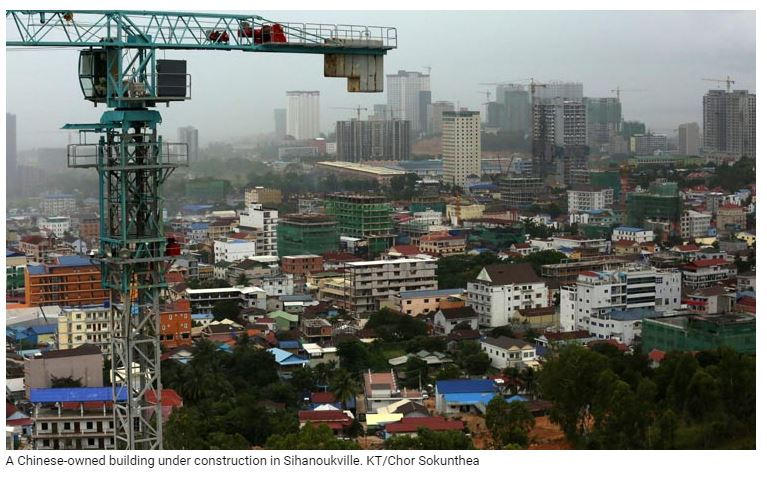Cambodia: Real estate experts concerned about China’s investment restrictions
Real estate insiders are concerned about the effect that China’s decision to restrict large-scale capital outflows is having on the Kingdom’s market.
Two years ago, China implemented a set of policies that imposed additional restrictions on outbound investment. The aim was to address concerns about large-scale capital outflows and mitigate perceived risks to China’s financial system from rapid overseas investment.
With about 40 percent of total FDI inflows in the Kingdom coming from China, growth in the local real estate sector has been affected by these policies, according to some insiders.
King Heang, regional operating principal of Keller Williams Cambodia, told Khmer Times last week that condominium sales have seen a slowdown as a result of China’s policies.
“Land prices are rising, partially due to the influx of Chinese investors coming into the country,” he said.
However, he argues that China’s capital outflow restrictions might be a good thing, as they can play a part in stabilising the local real estate market by making it less reliant on investors from just one country.
Tom O’Sullivan, CEO of realestate.com.kh, said the risk is real, explaining that China has curbed outbound investment before in, for example, Australia. “The money almost stopped overnight,” he said.
However, he believes Cambodia is in a different position. “Cambodia is in a unique position. I believe China sees Cambodia as a gateway to the region.”
Paul Ellender, manager of Freer Properties (Cambodia), said he can also see the impact of the Chinese policies.
“My fear is that, since China is the single largest investor in Cambodia, any slowdown will be difficult for the Kingdom as I am not seeing much evidence of economic diversification.
“I think the effects will be gradual unless something radically changes in terms of China’s economy and/or government fiscal policy,” he said.
“Potentially, some projects may be affected. However, given Cambodia’s strategic importance with China’s Belt and Road Initiative, I believe that investments will continue,” Mr Ellender said.
On the other hand, Kheang Puthy, president of the Real Estate Association, said the impact on the local market has been negligible if any at all.
“I haven’t seen any signs showing that growth is slowing down and there are a lot of projects coming online,” he said. According to him, foreign investors and businesses, particularly from China, keep pouring into the country.
According to an article in the South China Morning Post, China’s outbound direct investment (ODI) fell by 9.6 percent to 143.04 billion in 2018 as a result of the government crackdown on capital flight.
Despite the decline, China’s influence in global FDI continued to expand. China remained the world’s second-largest overseas investor (second only to Japan) as global FDI dipped by 29 percent.
“The country’s stock of ODI reached $1.98 trillion in 2018, ranking third after the United States and the Netherlands.”
According to CBRE’s China Investor Intentions Survey, last year, Chinese outbound real estate investments dropped by 80 percent to $75 billion.
The survey findings showed that investors plan to continue scaling back their overseas acquisitions in Western Europe and North America.
However, Chinese buyers retain strong intentions to invest within Asia, partly due to opportunities to purchase assets in sectors expected to benefit from the Belt and Road Initiative with emerging Asian countries such as Vietnam and Thailand.
In its first Financial Stability Review (FSR), NBC presented a mixed outlook for the sector.
“The real estate sector saw a continued supply of properties supported by both external funding and domestic credit; however, if external demand and the domestic economy weaken, this could cause an oversupply,” read the report.
“By the end of 2019, the supply of condominium units in all segments, retail space, and office space is expected to surge,” the report said.
“These developments have raised some concerns that perhaps incoming supply might outstrip demand. This is particularly the case if both external and domestic demand weakens going forward. As a result, sales, rental and occupancy rates across the market could be adversely affected in 2019,” it said.
Source: https://www.khmertimeskh.com/50643320/real-estate-experts-concerned-about-chinas-investment-restrictions/


 English
English




